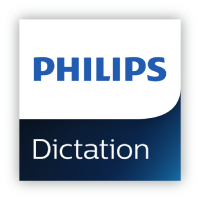 By Legal Futures Associate Philips Dictation
By Legal Futures Associate Philips Dictation
Lack of time
How many times do business professionals complain there’s not enough hours in the day? And the pressure on time is often exacerbated by mundane administrative tasks taking up chunks of the day that could be better spent on more rewarding activities.
Speech to text software can help business professionals to spend less time on support activities such as document creation and editing. It is generally acknowledged that we speak up to seven times faster than we type, so the production of documents and reports using voice input is considerably faster using speech than the keyboard. Elsewhere, integrating speech to text with workflow can help to identify and remedy bottlenecks in the document production process. And the time saved can be used more productively by spending time with clients or working on new revenue-generating ideas.
Inefficient processes
Many firms, including lawyers and accountants, typically depend on support teams or external transcriptionists to transcribe documents. However, this can lead to delays in the reviewing and editing stages, particularly if the original author spends lengthy periods of time out of the office. There may also be approval cycles to go through. And once finished, the document needs to be filed efficiently so that it can be retrieved quickly whenever it is needed in the future.
By integrating speech recognition software with workflow and document management software, the entire document creation and management processes can be streamlined. Providing a more responsive service with faster document turnaround, incorporating high quality documents with fewer errors, is becoming a business differentiator. So, for example, instead of manually recording the main points of a meeting with customers, why not use a smart meeting assistant that will automatically record and transcribe the discussions, with the minutes promptly circulated once they have been approved, all of which will create a positive image of your business.
Silo mentality
Silo mentality is an attitude in organisations where certain departments or teams don’t share knowledge or information with others. This can result in reduced efficiency in the overall operation and difficulties in achieving long term goals. It can be particularly prevalent in hybrid environments.
The key to addressing this is effective collaboration. This can take the form of authoring documents together, communicating more effectively with each other, or contributing to project activities. This allows colleagues and business partners to communicate more efficiently and facilitates teamwork and team cohesion, which in turn leads to greater productivity.
Speech to text systems can play an important role here. For most organisations, the production of accurate and timely documents is a key requirement, so anything that allows authors to produce these more effectively and gather inputs from colleagues is going to play a major role. And by integrating speech to text with workflow software a business can automate the entire document production cycle, from the initial voice recording right through to the final sign-off of the document.
Challenges of hybrid working
Given the rapid pace of adoption of the hybrid working model, the challenge for businesses is to put technology-based solutions and platforms in place in order to support collaboration, streamline processes and allow for device and location-independent mobile working.
Speech to text software has a vital role to play in meeting these requirements. If the software is in the cloud, then accessing it from home is just as straightforward as from the office, with encryption allowing for the secure transmission of digital files. There are also a wide variety of professionals who need access “on-the-go” to dictation capabilities, for example healthcare staff visiting patients or accountants working at client sites. Speech to text apps available via the cloud allow users to access a fully featured version of the software from a range of mobile platforms, using a smartphone or mobile voice recorder, giving them the flexibility to create documents at any time, from any location.
Cybercrime threats
Cybersecurity has grown into an issue that affects every sector, from SMEs to large corporates. During 2024 experts are predicting greater threats from ransomware, more extensive credential stealing and increased attacks on supply chains.
In the office environment this means a wide range of online files and documents can be at risk from a variety of threats. These might include, for instance, electronic health records, customer information and commercially sensitive documents. Consequently, the need for strong security measures has never been greater.
Speech to text software obviously play a pivotal role in the creation of electronic documents. Fortunately, the leading products are able to offer reassuringly strong security capabilities. For example, Philips SpeechLive employs multi-factor authentication (MFA) to add an extra level of security since it requires two or more distinct factors to validate a user’s identity, rather than relying on just a simple username and password combination. In addition, encryption techniques are employed to create a layered defence that make it more difficult for an unauthorised person to gain access to audio recordings and file attachments. All types of audio files are always created, sent and stored with industry standard AES 256-bit encryption.










